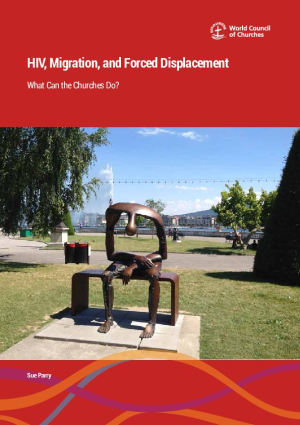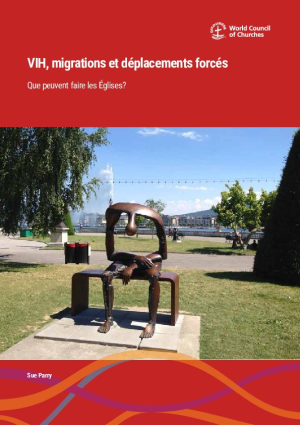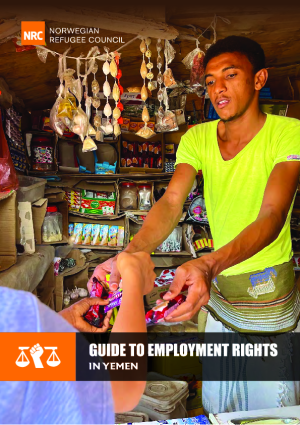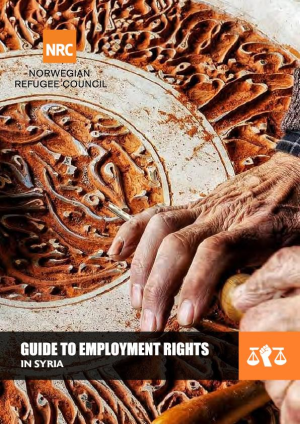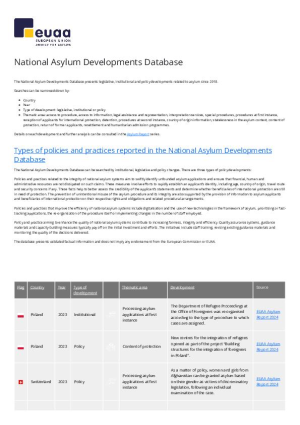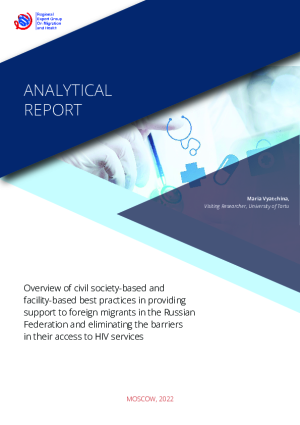For advocates
HIV, Migration, and Forced Displacement – What Can the Churches Do?
This manual has been developed as a tool to help churches, religious leaders, and faith communities broaden their understanding of some of the issues at stake and explore how and where they can best respond.
- Author
- Sue Parry for the World Council of Churches
- Reference
- 2025
- Format
- Community Resources
- Countries
- Global
VIH, migrations et déplacements forcés – Que peuvent faire les Églises?
Ce manuel a été élaboré afin d'aider les Églises, les chefs religieux et les communautés confessionnelles à mieux comprendre certains des enjeux et à explorer les moyens et les domaines dans lesquels ils peuvent agir au mieux.
- Author
- Sue Perry - World Council of Churches
- Reference
- Published 2022 - Translated in 2025
- Countries
- Global
Migration Information and Support for People Living with HIV in Australia – A National Scoping Review of Resources
This report presents the results of a national scoping review of resources and information targeting this priority population. It details existing resources from sector organisations supporting PLHIV who are migrants and non-citizens, from factsheets and peer‑support programs targeting specific communities, to legal clinics, to clinical tools. Importantly, it identifies priority areas for future resource development, and suggests next steps for the creation of targeted information, referral and support pathways to ensure that PLHIV who are migrants and visitors can access the information and help they need.
- Author
- NAPWHA and Health + Law
- Reference
- 2025
- Countries
- Australia
Report of the International Task Team on HIV‐related Travel Restrictions
In an effort to finally eliminate HIV-related restrictions, UNAIDS convened in 2008 the International Task Team on HIV-related Travel Restrictions (the Task Team). This is the Report of the findings and recommendations of the Task Team.
- Author
- UNAIDS
- Reference
- December 2008
- Countries
- Global
Guide to Employment Rights in Yemen
This legal guide covers the laws, regulations and procedures governing employment rights in Yemen, both for Yemeni and foreign nationals, including refugees and migrant workers. It is intended as a reference guide for legal practitioners, as well as other organisations and individuals working on employment law issues in Yemen.
- Author
- Rua’a Abdel Haq for NRC
- Reference
- 2023
- Countries
- Yemen
Guide to Employment Rights in Syria
This legal guide covers the laws, regulations and procedures governing employment rights in Syria for Syrian and foreign nationals. It is intended as a reference guide for organisations and individuals working on employment rights issues in Syria.
This guide is also available in Arabic.
- Author
- NRC
- Reference
- July 2023
- Countries
- Syria
Migrant Health Training Toolkit
This toolkit offers resources and practical information for migrant health advocates working to improve the HIV-related health outcomes of migrants in precarious circumstances across the European region. These materials can be used when working directly with migrants or when engaging in HIV-, healthcare- and/or immigration-related advocacy. This toolkit draws on content from AAF and Mi-Health Europe’s annual training programme for migrant health advocates, Mi-Care.
- Author
- Mi-Health
- Reference
- 2023
- Countries
- Europe (Northen, Central, Southern and Western)
National Asylum Developments Database
Presents legislative, institutional and policy developments related to asylum since 2018. Searches can be narrowed down by: Country; Year; Type of development: legislative, institutional or policy Thematic area: access to procedure, access to information, legal assistance and representation, interpretation services, special procedures, procedures at first instance, reception of applicants for international protection, detention, procedures at second instance, country of origin information, statelessness in the asylum context, content of protection, return of former applicants, resettlement and humanitarian admission programmes. Details on each development and further analysis can be consulted in the Asylum Report series. There is also a database of "Country of Origin Information" with comprehensive information on health system.
- Author
- European Union Agency for Asylum
- Reference
- Updated regularly since 2018
- Countries
- Lithuania, Luxembourg, Poland, Bulgaria, Romania, Croatia, Slovakia, Finland, Cyprus, Slovenia, Austria, Estonia, Czech Republic, Spain, Hungary, Malta, Portugal, Ireland, European Union - EU, Italy, Latvia, Belgium, Denmark, France, Germany, Greece, Netherlands, Sweden
Overview of civil society-based and facility-based best practices in providing support to foreign migrants in the Russian Federation and eliminating the barriers in their access to HIV services
The goal of this study is documenting the best practices in providing support and eliminating barriers in access to the services related to HIV and other infectious diseases for migrants in the Russian Federation. The study takes into consideration the differences in the barriers for migrants in big Russian cities (Moscow and St. Petersburg) and other regions of the Russian Federation. The analysis allowed identifying a set of the existing practices of cross-border cooperation between the organisations helping migrants in the countries of origin and in the regions of the Russian Federation. The study answers the question about how civil society is engaged in addressing the problem of providing support to migrants and how it helps to eliminate or overcome the barriers in access to HIV services on the territory of the Russian Federation in the existing circumstances.
- Author
- Regional Expert Group On Migration and Health
- Reference
- 2022
- Countries
- Russian Federation
